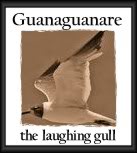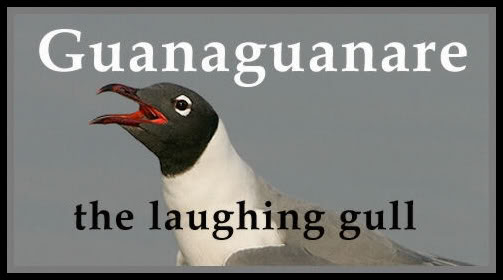CHOLITO JESUS [Villancico Peruano]
By Los Toribianitos
Lalalalala Lalalalala Lalalalala la Uy!
Lalalalala Lalalala la Lalalalala la Lalalalala la Uy!
Lalalalala la Lalalalala la
Al niño Dios le llevamos un ponchito de color,
Al niño Dios le llevamos un ponchito de color,
Un chuyito muy serrano, zapatitos de algodón.
Un chuyito muy serrano, zapatitos de algodón.
To the God-child we carry a coloured poncho
An Andean cap, little cotton shoes.
Y todos le gritarán: Cholito!
¿De dónde llegaste tú?: Cholito!
Todos le creerán: Cholito!
Que naciste en el Perú
And everyone will shout: Cholito!
From where have you come? Cholito!
Everyone will believe: Cholito!
That you were born in Peru.
Lalalalala Lalalalala Lalalalala la Uy!
Lalalalala Lalalalala Lalalala la
Lalalalala la Lalalalala la Uy!
Lalalalala la Lalalalala la
A la Virgen le llevamos un mantón abrigador
A la Virgen le llevamos un mantón abrigador
A San José una quena, un charango y un tambor.
A San José una quena, un charango y un tambor.
To the Virgin we carry a warm shawl
To San Jose, a flute, a charango and a drum.
Y todos le gritarán: Cholito!
¿De dónde llegaste tú?: Cholito!
Y todos le creerán: Cholito!
Que naciste en el Perú
Lalalalala Lalalalala Lalalalala la Uy!
Lalalalala Lalalalala Lalalala la
Lalalalala la Lalalalala la Uy!
Lalalalala la Lalalalala la
[Instrumental]
Cholito! Cholito! Cholito!
Lalalalala Lalalalala Lalalalala la Uy!
Lalalalala Lalalalala Lalalala la
Los indiecitos pastores trigo y quinua llevarán,
Los indiecitos pastores trigo y quinua llevarán,
José y la Virgen María buena chicha tomarán
José y la Virgen María buena chicha tomarán
The Indian/Indigenous shepherds will carry wheat and quinine
Joseph and the Virgin Mary will drink good chicha.
Y todos le gritarán: Cholito!
¿De dónde llegaste tú?: Cholito!
Y todos le creerán: Cholito!
Que naciste en el Perú.
Lalalalala Lalalalala Lalalalala la Uy!
Lalalalala Lalalalala Lalalala la Lala la lalala
Source: The lyrics posted on this blog are often transcribed directly from performances. Although it is my intention to faithfully transcribe I do not get all the words and I have a knack for hearing the wrong thing. Please feel free to correct me or to fill in the words that I miss by dropping me a message via e-mail. I'd be forever grateful. Thanks in advance! ..............................................................................................................................

A Note From The Gull
In this joyful and rousing Peruvian villancico the story of the Nativity is told with a Peruvian twist. The shepherds in the fields are indigenous "Indiecitos pastores" and they bring gifts of "trigo" wheat and "quinua" quinine and "chicha" a fermented corn drink. The travellers who visit the child of God are carrying gifts of "un ponchito de color" a colourful little poncho, "un chuyito muy serrano" a cap typical of the Andean Highlands and "zapatitos de algodón" little cotton shoes [Remember the woven cotton "sapats" that Trinidadians used to wear?] To Mary they bring "un mantón abrigador" a warm shawl and to San Jose they bring "una quena" an Incan flute, "un charango" a charango [higher pitched string instrument like a tiny cuatro] and "un tambor" a drum.
They sing: Y todos le gritarán: Cholito! ¿De dónde llegaste tú?: Cholito! Y todos le creerán: Cholito! Que naciste en el Perú. Here "Cholito" is used to address the child, Jesus. It is a way of claiming Him as one of their own - "naciste en el Perú" who was born in Peru. Cholito is generally used as a term of endearment usually used to refer to a child but it has other connotations. It can describe a person with Indigenous heritage, whether "pure" or mestizo, an individual of mixed heritage - indigenous and european. I think that this is the meaning that is appropriate for this song. Jesus is born among the people of the land. Like the "n" word however, how the meaning of the word "cholito" is intended and taken depends on who is using it and the tone with which it is used. Some have described it as a pejorative, racist word used to put down morenos or indigenous persons or people from the Highlands, or native peoples who are being derided for adopting Western ways.
I provide these details solely to inform and with the conviction that nothing can detract from the unbridled affection and joy of the warm welcome that this song expresses at the birth of the Saviour.
"Patria est communis omnium parens" - Our native land is the common parent of us all. Keep it beautiful, make it even more so.
Blessed be my beautiful people
Blessed be the day of our awakening
Blessed is my country
Blessed are her patient hills.
Mweh ka allay!
Guanaguanare












0 comments:
Post a Comment